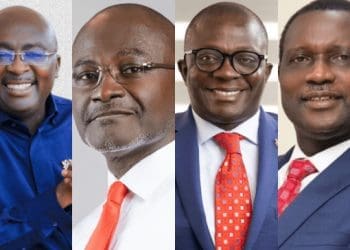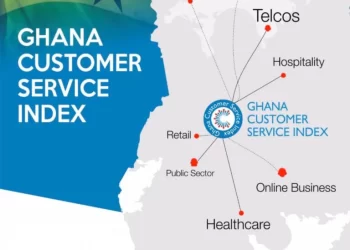A political storm has erupted as former Ghana Cocoa Board (COCOBOD) Chief Executive, Joseph Boahen Aidoo, and presidential hopeful Dr. Bryan Acheampong battle fiercely over who deserves credit for Ghana’s historic decision to end decades of syndicated loans in cocoa financing.
The groundbreaking policy, which replaced Ghana’s 32-year reliance on annual offshore syndicated loans with a self-financing model, has been hailed as one of the most transformative reforms in the cocoa sector’s history.
But the question of who fathered the policy has now become a matter of bitter contention.
Bryan claims full credit
At a recent campaign engagement in the Eastern Region, Dr. Acheampong—appointed Minister for Food and Agriculture in 2023—described himself as the architect of the bold reform.
Dr. Acheampong said Ghana’s traditional model—borrowing billions from foreign banks at interest rates ranging from 5% to 10%—was unsustainable.
His alternative, he claimed, was rooted in “common sense Kwahu business calculation”: requiring international buyers to bring upfront payments for cocoa instead of saddling Ghana with debt.
Supporters of Dr. Acheampong’s presidential campaign have amplified this message, portraying him as a bold leader who broke with decades of financial dependency and gave Ghana’s cocoa sector new life.
Aidoo fires back
But Joseph Boahen Aidoo, who served as COCOBOD’s Chief Executive for seven years until 2024, has dismissed Bryan’s narrative as “a shameful attempt to rewrite history.”
In a rebuttal, Aidoo accused the former minister of “blatant intellectual plagiarism and dishonesty,” insisting the no-syndication policy was his own brainchild, developed in close consultation with COCOBOD’s board, management, and the Economic Management Team—with the support of President Nana Akufo-Addo and Vice-President Dr. Mahamudu Bawumia.
“Bryan vehemently opposed the policy from the very beginning. He was the only dissenting voice when the matter went before the Economic Management Team,” Aidoo charged.
“For him to now parade himself as the architect of the policy is not only dishonest but disrespectful to those who truly birthed and defended it.”
According to Aidoo, Dr. Acheampong not only resisted the initiative but actively blocked efforts to take it to Cabinet for approval.
He alleged that the former minister later “nicodemously” sent the proposal to Cabinet without the knowledge or involvement of those who had originally designed it.
“Even that action in itself is disingenuous,” Aidoo said, adding that it took President Akufo-Addo’s direct intervention to rescue the policy from what he described as Bryan Acheampong’s attempts to “kill it.”
Competing legacies
Both men now claim ownership of a reform that has transformed Ghana’s financial independence in cocoa trading.
For Aidoo, the success of the policy is proof of his leadership at COCOBOD.
He points to Bank of Ghana projections showing stronger financial sustainability for the cocoa sector, reduced borrowing costs, and Ghana’s enhanced position in the global market.
“These achievements belong to those who had the vision and courage to fight for them in the face of stiff resistance,” he said.
For Bryan Acheampong, however, the decision is evidence of the kind of bold and unconventional leadership he promises to bring if elected flagbearer of the NPP. “Leadership requires courage,” he said.
“We cannot keep doing the same things and expect different results.”
Political undertones
The clash is more than a policy debate—it underscores the high political stakes within the NPP as the party prepares for its flagbearership contest.
As the political drama unfolds, the legacy of the no-syndication model risks becoming less about national pride and more about a personal tug-of-war over credit between two powerful men.












